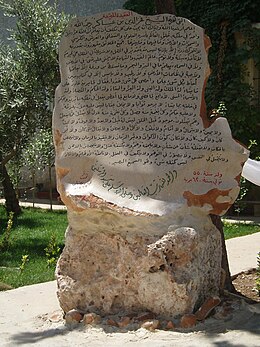
Back تهافت الفلاسفة Arabic La incoherència dels filòsofs Catalan Die Inkohärenz der Philosophen German Nekohereco de filozofoj Esperanto La incoherencia de los filósofos Spanish تهافتالفلاسفه Persian L'Incohérence des philosophes French Tahafut al-Falasifah ID Bêvaciya fîlozofan (pirtûk) Kurdish Tahāfut Al-Falāsifah Malay
| Part of a series on |
| Ash'arism |
|---|
 |
| Background |
The Incoherence of the Philosophers (Arabic: تهافت الفلاسفة, romanized: Tahāfut al-Falāsifa) is a landmark 11th-century work by the Muslim polymath al-Ghazali and a student of the Asharite school of Islamic theology criticizing the Avicennian school of early Islamic philosophy.[1] Muslim philosophers such as Ibn Sina (Avicenna) and al-Farabi (Alpharabius) are denounced in this book, as they follow Greek philosophy even when, in the author's perception, it contradicts Islam. The text was dramatically successful, and marked a milestone in the ascendance of the Asharite school within Islamic philosophy and theological discourse.
The book favors faith over philosophy in matters specifically concerning metaphysics or knowledge of the divine.
- ^ "Avicenna", Encyclopedia Iranica, retrieved 2007-12-30